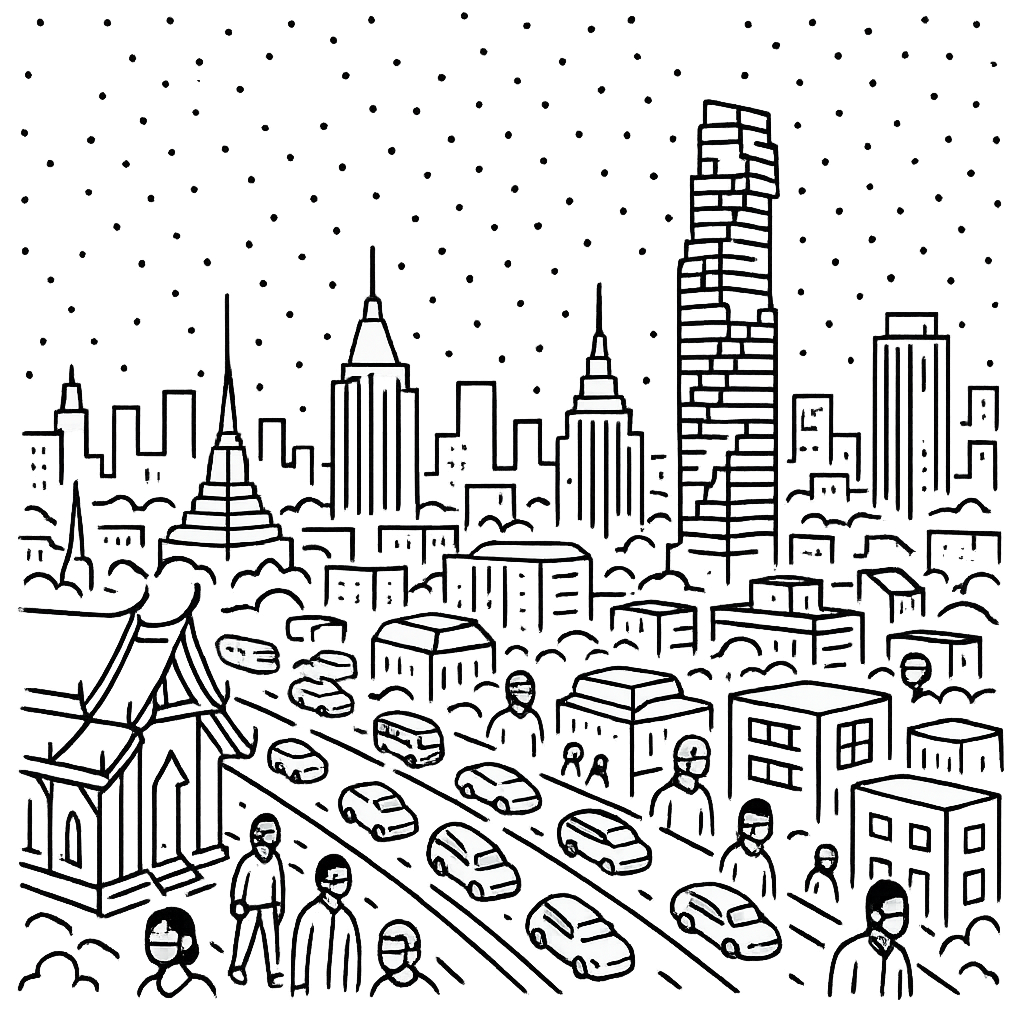Ec(h)otoning Bangkok
This 5-year-long project aims to explore Bangkok’s wicked urban problems through a novel conceptual lens termed “ec(h)otoning,” which builds upon and critically extends the ecological concept of ecotones. An ecotone, traditionally defined as a zone of transition or interaction between two distinct ecological systems, is recognised for its biodiversity, productivity, and dynamic spatial and temporal characteristics. However, this project innovatively shifts the term from “ecotone” to “echotone” to emphasize the reverberations and ongoing resonances between human and nonhuman entities, cultural and natural processes, spatial and temporal dimensions, and the movements of emplacement and displacement in urban ecologies. In our project, the echo evokes multiple voices, beings, materialities, technologies, and a myriad of policies and practices that respond back and forth—absorbing, rippling, rolling, waving, and weaving together to produce subtle adjustments within a restless urban environment.
Ec(h)otoning Bangkok is supported by Global Center of Spatial Methods for Urban Sustainability (SMUS) and the Department of Sociology and Anthropology, Faculty of Political Science, Chulalongkorn University.
The City as Legal Sensorium: Bangkok’s PM2.5 and the Atmospherics of Legislative Emergence
When the air in Bangkok turns toxic, the city does not merely breathe in pollution—it begins to make sense and make law. From satellite-tracked dust clouds and smartphone air-quality alerts to viral hashtags and citizen-led legislation, Bangkok’s recurring haze crises have transformed the city into a site where invisible particles trigger visible legal effects. This paper explores how Bangkok functions as a legal sensorium: a place where urban sensory infrastructures, bodily experiences, activist energies, public sentiments, and international norms synergizes to produce new environmental legalities. Rather than a passive recipient of global climate governance, Bangkok city actively detects, translates, and reworks international frameworks through its unique assemblage of urban infrastructures, digital platforms, and socio-political mobilizations. By following the emergence of Thailand’s Clean Air Act and the city’s role in global networks like Breathe Cities and C40, I argue that legal normativity in the Anthropocene is increasingly forged not just in courtrooms or treaties, but in the city’s affective atmospheres, data flows, and urban infrastructural politics, enabling postplural legal formation to emerge.





